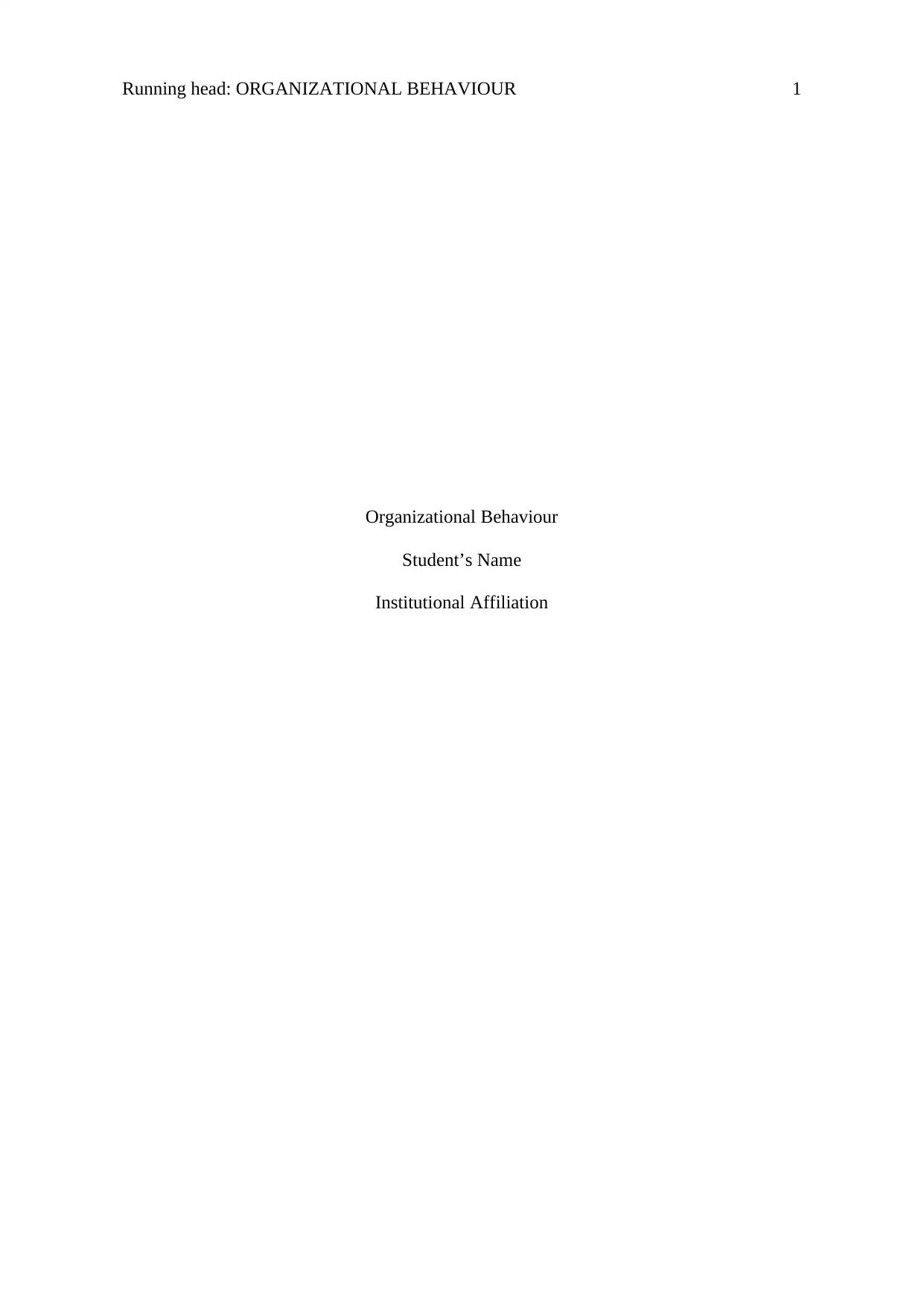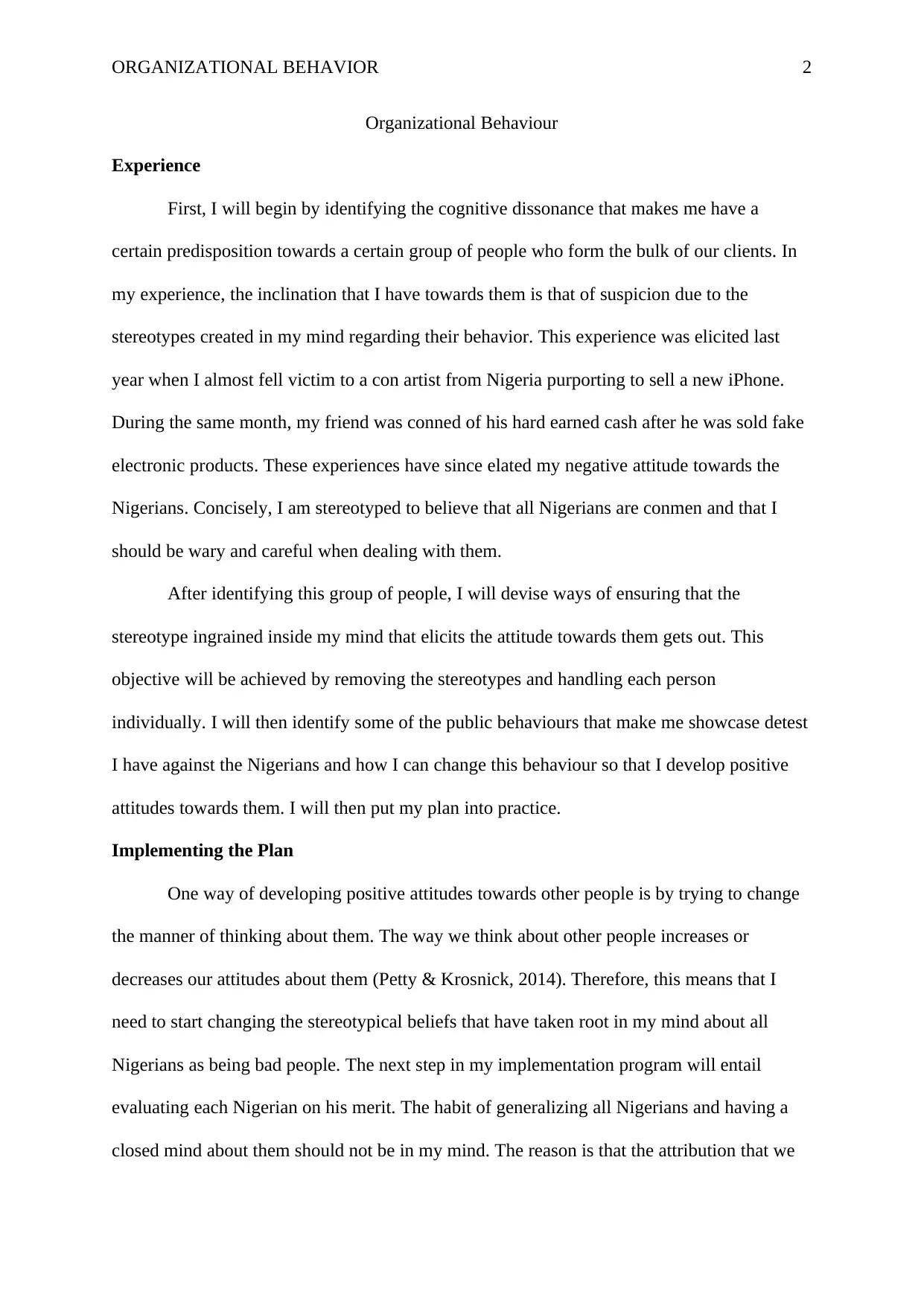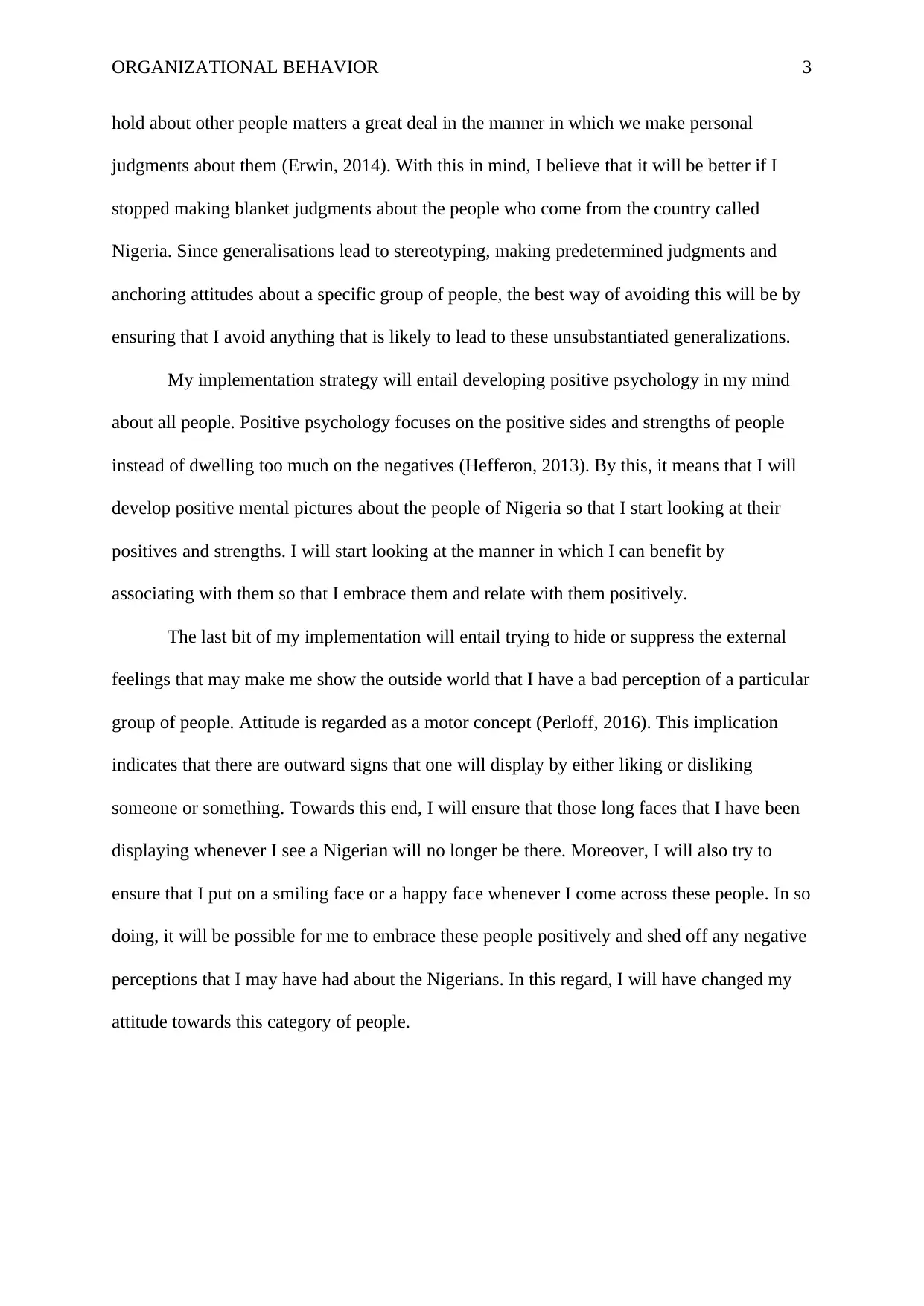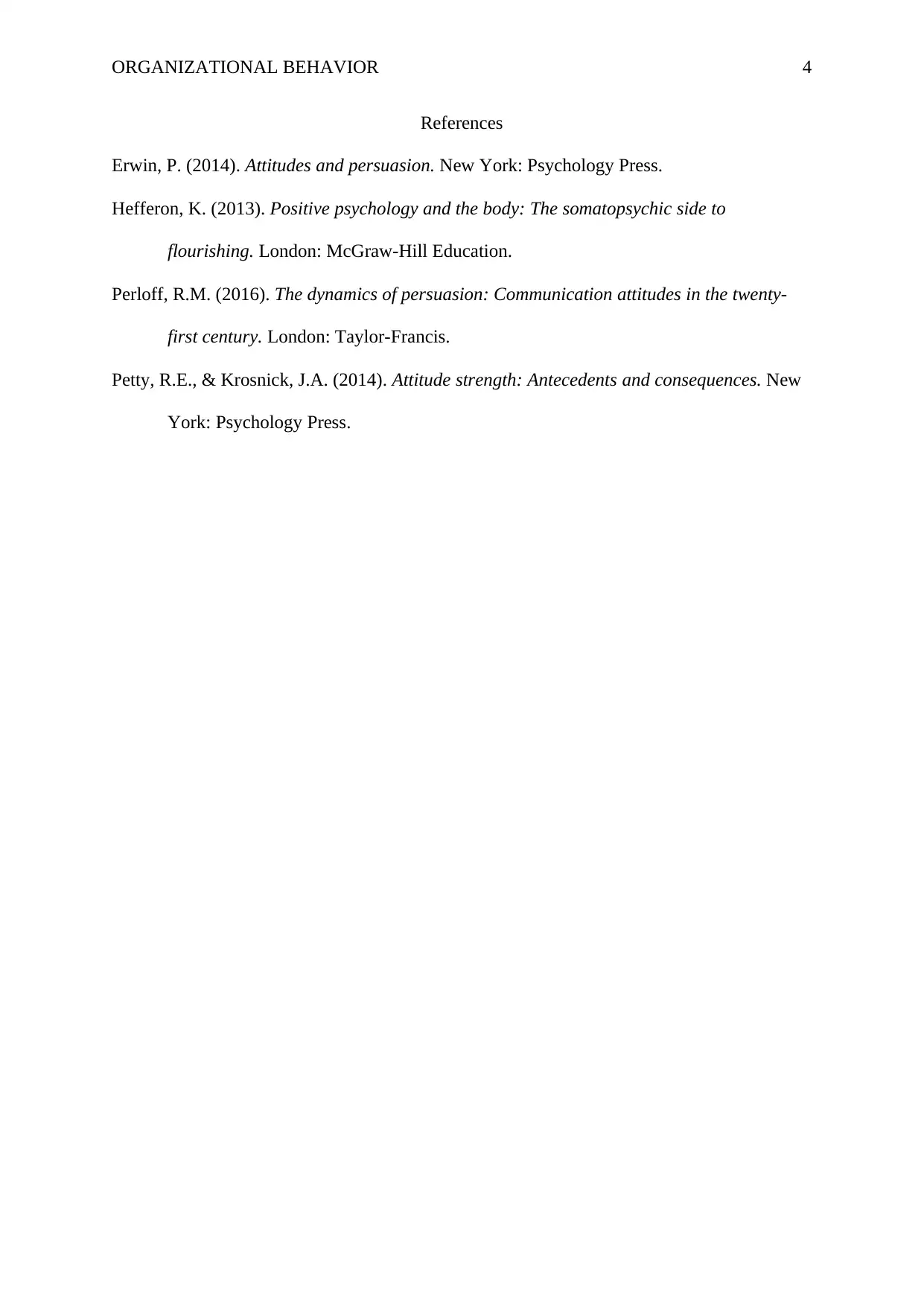Organizational Behaviour: Cognitive Dissonance and Attitude Adjustment
VerifiedAdded on 2023/06/03
|4
|827
|282
Essay
AI Summary
This essay addresses the issue of cognitive dissonance and its impact on attitudes within an organizational behavior context. The author reflects on personal experiences with stereotypes, specifically concerning a negative predisposition towards individuals from Nigeria. The essay outlines a plan to overcome these biases by challenging stereotypical beliefs, evaluating individuals on their merits, and adopting a positive psychological approach. The implementation strategy involves consciously changing thought patterns, avoiding generalizations, focusing on positive attributes, and suppressing outward expressions of negative attitudes. By actively modifying both internal beliefs and external behaviors, the author aims to foster a more inclusive and positive attitude towards the targeted group, thereby improving overall organizational behavior and interpersonal interactions. The essay concludes with references to relevant academic sources that support the proposed strategies for attitude change and cognitive dissonance resolution.
1 out of 4











![[object Object]](/_next/static/media/star-bottom.7253800d.svg)